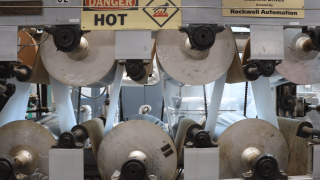-
Electric power could bring paper mills to net zero emissions – new study
Date posted:
-
-
Post Author
Tracey Biller
-
![]()
A recent study carried out at North Carolina State University suggests that US pulp and paper mills could reach net zero emissions by switching from natural gas to electric and biomass power, alongside improvements in energy efficiency.
The research was published in the Journal of Cleaner Production and examined how decarbonisation could be achieved across different types of mills. Four categories of mills were modelled based on their use of virgin or recycled fibres and whether they produce pulp and paper from raw wood on-site ̶ integrated mills ̶ or rely on pulp processed elsewhere ̶ non-integrated mills.
Virgin mills use fresh wood, whereas recycled mills use previously processed fibres. Virgin integrated mills contribute 30% of US paper production and 33% of the industry’s greenhouse gas emissions, making them the largest contributors.
Non-integrated mills, by contrast, depend entirely on purchased electricity and natural gas for heating and drying.
The study found that converting to electric-powered boilers could cut emissions by up to 61%, potentially bringing these mills to net zero – provided electricity production itself is decarbonised.
The team also explored energy-saving measures during the papermaking process, particularly in dewatering before thermal drying. In addition, researchers assessed low-carbon fuel options such as replacing fossil fuels with waste wood in boilers.
Integrated mills saw significant emission reductions from substituting biomass, especially when electricity costs were higher than natural gas. Biomass could also supplement turbine-generated steam, providing both decarbonisation and energy security. Depending on the extent of fossil fuel replacement, emissions fell by 24–48% using biomass alone.

